by Salina Shah, MVLCE
posted Jan 26, 2021
Ahimsa Paramo Dharma. Our highest duty is to reduce the harm we inflict. This ancient Sanskrit phrase is a central tenet of Buddhism, Jainism, and Hinduism, and has more recently been popularized by Mahatma Gandhi in his advocacy for non-violence. This imperative aligns with my own values and moral compass, and so I embraced it as I transitioned to a vegan lifestyle.
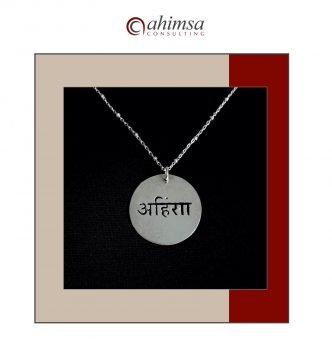
Ahimsa—non-violence towards all living beings—became my mantra. When I came across a silver necklace engraved with the word Ahimsa, I knew that it would quickly become my favorite piece of jewelry. That is how I found myself wearing an Ahimsa necklace as I walked into a corporate team dinner at a steakhouse.
I usually try to steer team dinners towards inclusive places with plant-based options. But since steakhouses and seafood establishments are the corporate norm, I knew not to walk in without either calling ahead or reviewing the menu in advance. I became adept at improvising with available plant-based swaps or relying on side dishes as the meal. But I was not prepared for this Brazilian steakhouse.
I studied the menu on the website in advance. There weren’t any obvious alternatives or swaps, so I called the restaurant. The receptionist insisted that there would be ample vegan options available. Which vegan dishes? She couldn’t say for sure. Their sizable salad bar has rotating items, and they would only know which specific items would be available on that day. Resigned to make the best of it, I went to the dinner.
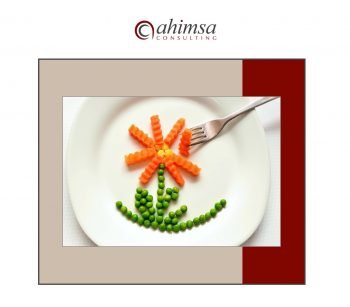
We had a lovely private room for our team. Leaving our belongings there, we made our way to the huge salad bar. I was confident that I would find plant-based options there, and I circled the bar to survey the items. Despite the vast, colorful array of items, most of the items contained cheese, butter or meat. Even the salad had cheese mixed in. I found a few vegetables and went back to our table. Other dishes were being brought directly to the table. Surely there would be other options there.
I asked the waitstaff if they had any vegan options. Seeing their stumped looks, I suggested rice and beans from their menu; however, they explained that neither was vegan. So, I asked for some plain rice. In the meantime, they served rolls that they said were vegan. But, after one bite, I realized they were full of butter. I continued picking at my vegetables and waited for the plain rice, which never came. Then, it was time for the main course.
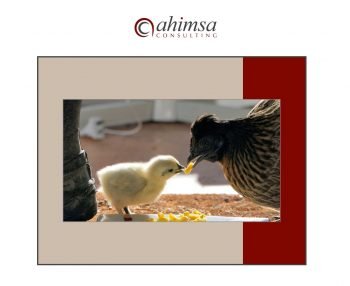
Now, I had been to plenty of steakhouses in the past as part of corporate dinners where colleagues would order their individual dishes. Here, though, each waiter carried a stack of a different type of meat on a large skewer and circled the room offering each person their food. As the evening went on, the waiters circled dozens of times, and I realized that this was an “all-you-can-eat” method of serving cuts of meat. It seemed like entire families of sheep, cows, chickens, pigs, and fish had been cooked, skewered, stacked, and paraded around the room. It was hard to watch.
Seeing the unnerving display of animal flesh and feeling unsure if I could get through the dinner, I contemplated getting up and walking out. But then I considered the feelings of my colleagues. My leaving could have made them uncomfortable, potentially ruining their dining experience and constituting a form of harm towards them. In that moment, I thought about the significance of wearing the Ahimsa necklace.
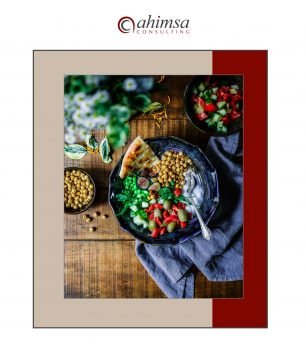
While veganism focuses on animals, the practice of Ahimsa includes people. So, when looking at a situation through a strictly vegan lens, animal welfare might be of utmost importance. However, when applying the broader meaning of Ahimsa, impact on both people and animals should be considered. How do you weigh human suffering versus animal suffering? How do you balance a human life against an animal life? I don’t know. However, respect, compassion, and empathy towards our fellow humans ought to be part of the equation.
This awareness gave me the strength to stay put and make the best of the situation. However, afterwards, I started advocating more strongly for myself, while remaining mindful of being respectful and considerate. When needed, I made my own alternative arrangements. Surprisingly, co-workers would opt to join me, and I noticed a shift as colleagues became more understanding and accommodating — highlighting the power of a little practice of Ahimsa.

Based in Boston, Salina Shah has been vegetarian for the past 30 years and vegan for the past five. She has personal experience with workplace challenges associated with maintaining an ethical vegan and plant-based lifestyle while rising to become a corporate executive at a Fortune 500 company. She founded Ahimsa Consulting (Instagram @ahimaconsulting) to raise employer awareness of the need to incorporate organizational sensitivity towards and inclusion of the growing number of plant-based employees.
In addition to being a Main Street Vegan Master Vegan Lifestyle Coach and Educator, Salina is a founding member of the Vegan Women’s Leadership Network, a long-time member of Vegan Leaders in Corporate Management, and has completed the eCornell Plant-Based Nutrition certification. She provides support to plant-based initiatives, including the Actuaries for Sustainable Health Care (an international group dedicated to achieving long-term fiscal sustainability through the use of whole food plant-based nutrition), and is an associate producer of the upcoming film, They’re Trying to Kill Us (a documentary exploring the hidden intersections between diet, disease, poverty, and racism).
Salina is trained as a credentialed actuary in employer health benefits and has years of start-up and Fortune 500 experience leading the design, development, and delivery of innovative solutions. She is a co-inventor of a health benefits optimization software patent, and she has expertise in strategic operations, innovation execution, and people leadership.
She also volunteers with To Empower Women (TEW), a non-profit that provides training and skill development for paid remote work to underserved women. Her work with TEW includes curating and leading spreadsheet training and providing mentorship and support.

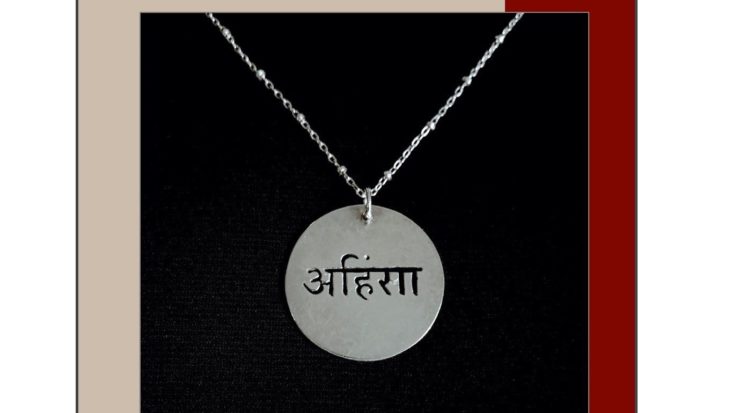
Awesome blog. Well written.
Thanks so much, Nina!